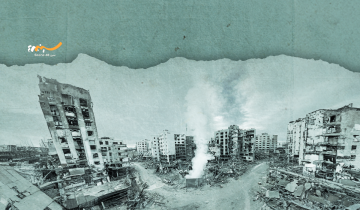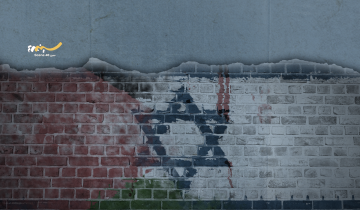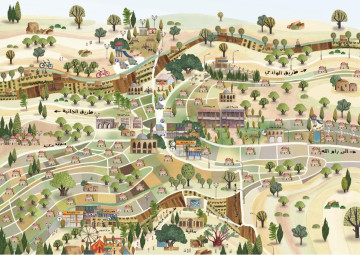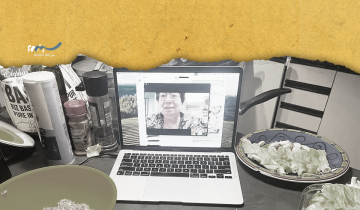The Inevitability of Return
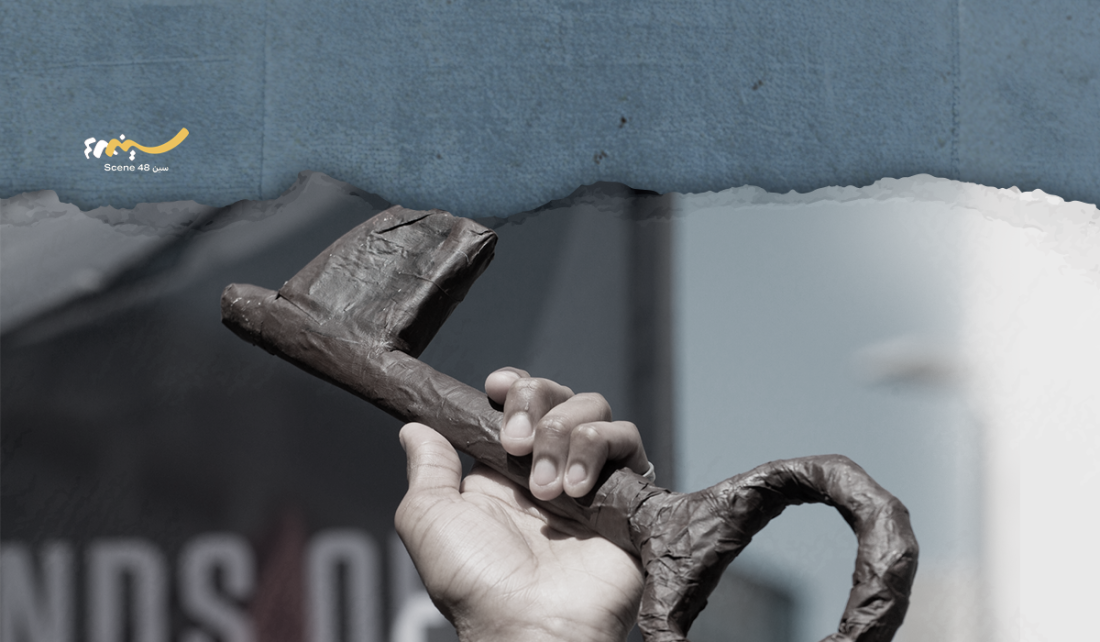
If we had believed the Zionists or colonial planners two centuries ago, they would have us think Palestine had no future. In the nineteenth century, they propagated the myth that “Palestine is a land without people”. This was not merely a myth, but a plan to make it so. The ongoing genocide in Gaza is its latest manifestation.
It began in full force seventy-seven years ago, when British collusion enabled the mass immigration of European Jews to Palestine and permitted them to form the Haganah—their army dedicated to conquering the land.
In 1948, the Zionist army--120,000 soldiers organized into nine brigades—carried out 38 military operations and depopulated five hundred and thirty towns and villages, including eleven major cities. This campaign involved at least ninety massacres. As a result, two-thirds of Palestinians—now numbering nine million—are refugees today, most of them living within sight of their homes. They have tried to return home ever since, risking death at the hands of Israeli occupiers.
Palestinians are driven not only by their natural desire to return home but are also supported by a multitude of UN resolutions. The most fundamental one is UN resolution 194, which calls for the return of the refugees hundred and thirty times—the most repeated demand in UN history. There is not a single line in international law that does not support the right to return home.
The Palestinians have never ceased their efforts, even in exile camps. Israel, in turn, has never stopped attacking them there. Since 1948, Israeli attacks have repeatedly targeted these “camps”. The 1982 massacre at Sabra and Shatila is but one example. The current genocide in Gaza is evident to anyone with a conscience.
Gaza Strip is home to Palestinians expelled by Israel in 1948 from two hundred and forty-seven towns and villages in southern Palestine. Today, Gaza is the world’s largest open-air prison—a concentration camp. Now it has become a cemetery for women and children, a site of total destruction: water, electricity, food, schools, hospitals and all signs of life have been obliterated. Why?
Because Palestinians are rightly trying to return home. They are crammed into Gaza at a density of eight thousand persons per square kilometer, forced by Israeli military action into an ever-smaller areas, with densities rising to twenty thousand persons per square kilometer. Who occupies their homes now? Only hundred and twenty thousand settlers—Ashkenazis from Eastern Europe—at a density of just seven persons per square kilometer. Practically, empty!
For the young men who cross the barbed, electrified, and armed barrier, they were trying to return home. The Great Return March demonstrations in July 2014 voiced the same demand. Why deny them the right of return? It is sacred to them, enshrined in international law, and entirely feasible.
The equation is straightforward. Our research demonstrates that it is entirely feasible to realize the right of return for Palestinian refugees in a manner that ensures justice and stability for all. This can be achieved by facilitating the voluntary relocation of Israeli settlers currently residing in depopulated Palestinian villages to major urban centers such as Tel Aviv, or elsewhere, within the framework of a comprehensive peace agreement. Denying the right of return cannot and should not continue.
Western media, under Zionist influence, has spent fifteen months focusing on the stories of two hundred fifty settler “hostages” (now just fifty-nine). In a clear case of racism, they ignore the two million hostages held in a Gaza’s concentration camp, under siege for more than twenty-eight thousand days. These people could return to their homes on foot. Instead, they die under the most documented genocide in history.
Will they achieve their right of return? I believe they will. The outrage over the bloodshed of thousands of women and children has reached every corner of the world. This truth has broken through the net of Zionist cover-ups and intimidation.
Who fears the truth? Only the criminal, the guilty. Will that bring justice to Palestinians? Yes, but slowly. The students demonstrating today will soon hold positions of power. The hidden story of massacres, occupation, apartheid, and all other crimes will be revealed. The Zionist grip on Western media and leaders will eventually weaken.
Many Jews, including Israelis, are slowly turning against Zionism and Israeli crimes. The force of public opinion, and institutions like the ICC and ICJ, is rising. There is no hope of Arab leaders, though. The real and lasting hope is that Palestinians will never forget their homeland and will fight for the right of return until they achieve it.
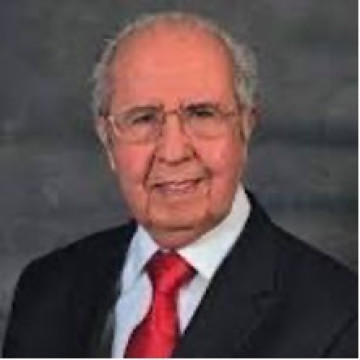
Dr Salman H. Abu Sitta
Palestinian scholar and founder of the Palestine Land Society. He is renowned for mapping Palestine and creating a return plan for refugees. Author of key atlases and Mapping My Return, he has dedicated decades to preserving Palestinian history and advocating for refugees’ rights worldwide.
